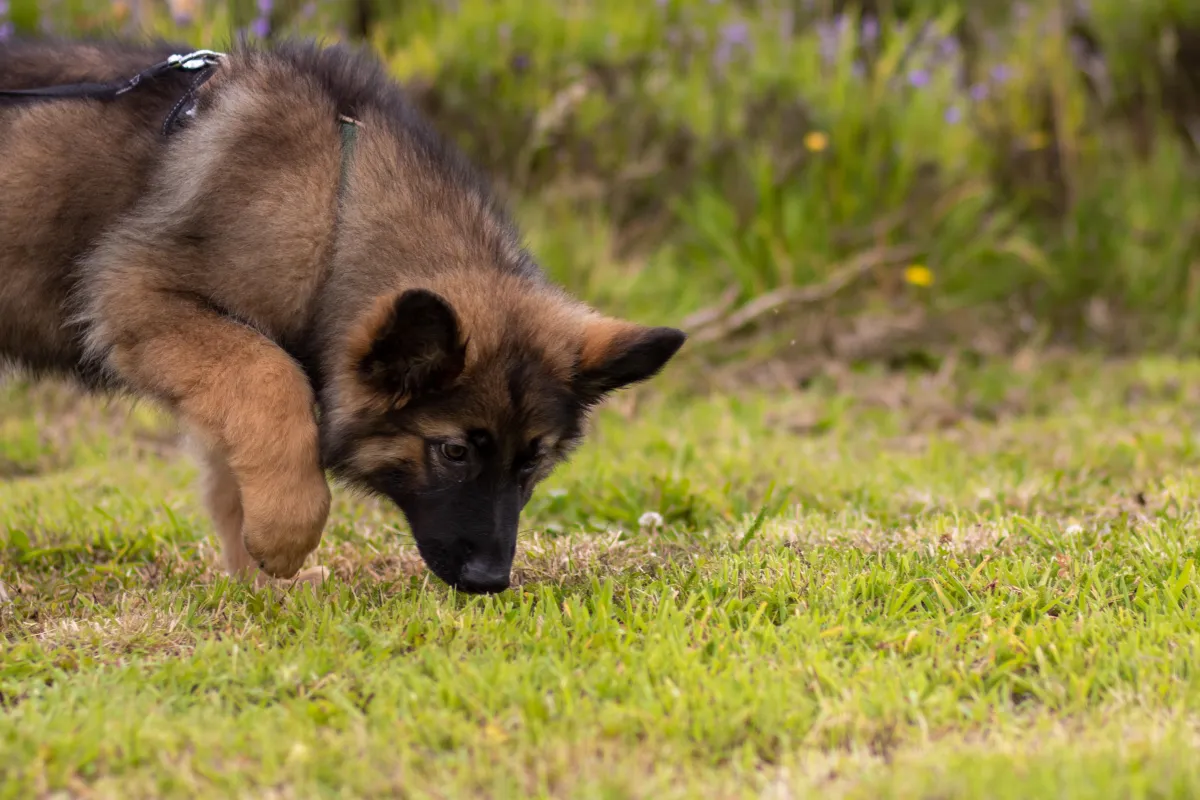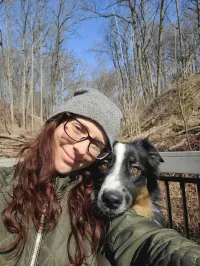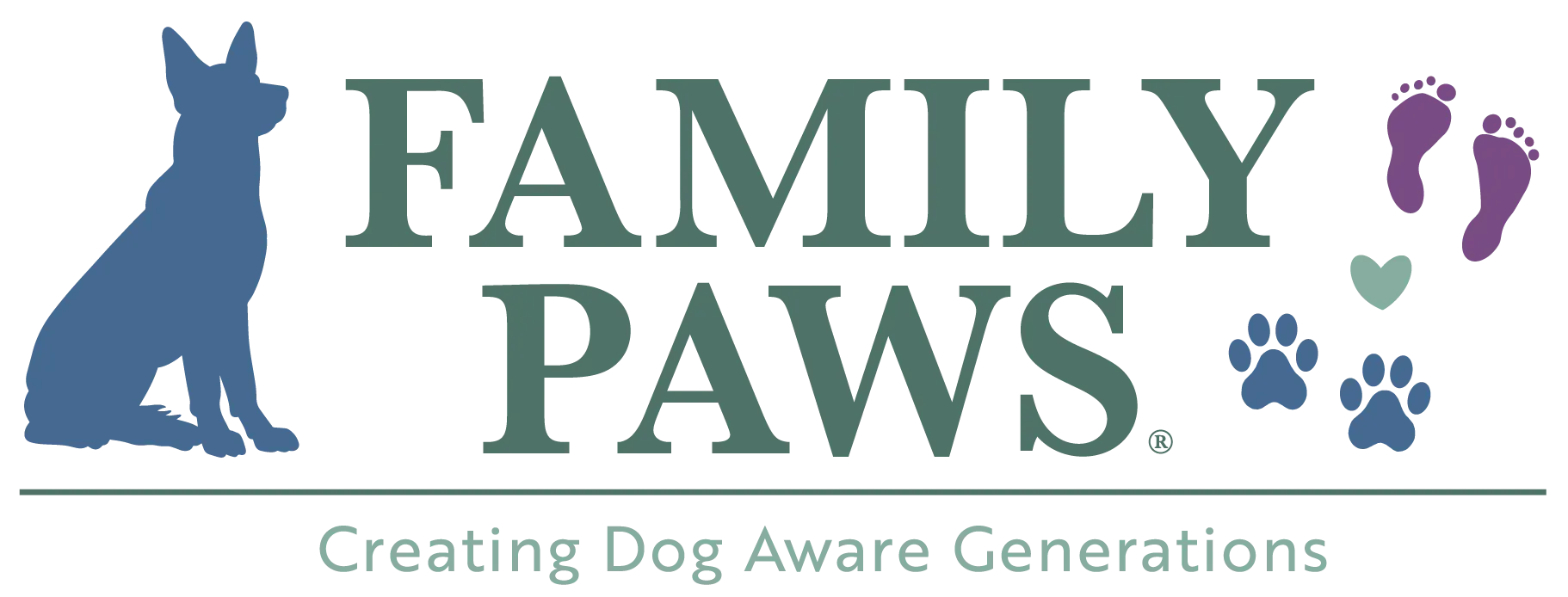Advice, Inspiration, and Experience Shares
Explore blog articles written by a certified trainer

Un-socialization
Socialization - Are we over doing it?
Are we creating hyper-social dogs through excessive socialization? In the world of puppy training, socialization is often hailed as the holy grail. But are we overdoing it? While socialization is crucial for a well-rounded dog, there is a fine line between healthy exposure and creating hyper-social canines. In this blog post, we delve into the concept of dog socialization and explore the potential consequences of excessive socialization.
How it Starts
Every puppy needs socialization to new people and dogs to develop confidence and sharpen their social skills. But are we going to far, and over socializing our puppies? One of the most common complaints I receive from exasperated dog guardians is that their dog just CANNOT pass by another dog or person without saying hello.
Imagine this: you and your adorable puppy venture out into the world, ready to meet and greet as many people and dogs as possible. Your puppy is in heaven, soaking up all the attention, wagging its tail, and eagerly pulling towards every passerby. It's a heartwarming sight to behold. Your puppy is the epitome of socialization success.
A Very Friendly Problem
Puppies, by their very nature, are small and adorable; all the nice people your puppy meets shower her with love and attention, and maybe even treats! Every friendly dog your puppy meets creates a strong desire for social interaction.

But let's take a closer look at what's happening in the background:
Puppy sees a person or a dog and starts to pull on the leash to get to them
Puppy gets to the person/dog and gets to say hi, and receives attention, praise, and possibly treats!
Puppy learns that other people and dogs are VERY interesting, and definitely worth checking out every single time.
Fast forward a few months, and suddenly it is no longer socially appropriate for our puppies to pull us to say hi to everybody. From your puppy's perspective, the rules have changed inexplicably! You used to go say hi to EVERYONE, but now you barely get to say hi to anyone? What changed? And why is my person telling me no and pulling me away from everybody?
Frustration Station
When we don't get what we want, frustration can easily arise, and lead to some interesting behaviours! If you've put your money into the vending machine, and it doesn't drop your chocolate bar out, you may go through a series of increasingly aggressive actions to try and get your reward, like pressing the buttons again, tapping on the glass, banging on the glass, yelling at the machine, and maybe even trying to tip the machine!
For the first few months you had your puppy, they got a chocolate bar every time they put money in the machine. All of a sudden, no more chocolate? I know I would have a fit! Far too often, our dogs have the rules unexpectedly changed on them, and are left frustrated, leading to what many would call aggression starting to occur.
Now that they can't go to see other dogs and people whenever they want to, we start to see more exaggerated pulling on the leash, barking, and maybe even snarling and snapping, all in an attempt to get back to doing what they've always been allowed to do before.
Un-socialization

Socialization is not just about saying hi to everyone you meet. It is about learning to be calm, confident, and well-behaved in different situations. It's much easier to avoid creating a hyper-social dog than to try and fix it when it's already happened! So here are some tips on making sure your puppy understands social norms from the start:
Make calmly watching other people and dogs the norm by giving outrageous amounts of treats and attention when they appear around you and your puppy. Don't be afraid to scatter a handful of treats on the ground as soon as your puppy looks at another dog or person, or to let them lick continuously at treats in your hand as you pass them by.
Politely tell people that ask to say hi that you are in training. My favourite line, that was always well received when raising my last puppy, is "We're working on NOT saying hi today!".
Capture greetings with a specific cue like "Go say hi!" for the 5 - 10% of dogs and people that you will allow greetings with. If you're not saying hi, you don't say it! Your puppy will start to recognize that those words mean it is ok to go and interact with that person or dog.
Socialization Done Right
A great way to make sure you avoid the hyper-social dog is to attend a socialization class. Click Treat Repeat offers PETS, a brand new training experience designed to provide safe socialization opportunities, while also teaching some social self-control! PETS (Positive Exposure Training Sessions) have a maximum of 5 puppies, or 4 adult dogs, and have a mixture of free social time, and "Hang Out with Me" time; this allows our dogs to develop appropriate social skills INCLUDING the very crucial skill of NOT saying hi!
PETS are start-anytime, zero commitment, with 3 different age groups available.
Looking for personalized advice?
Book a 30 min call to get your questions answered!

Un-socialization
Socialization - Are we over doing it?
Are we creating hyper-social dogs through excessive socialization? In the world of puppy training, socialization is often hailed as the holy grail. But are we overdoing it? While socialization is crucial for a well-rounded dog, there is a fine line between healthy exposure and creating hyper-social canines. In this blog post, we delve into the concept of dog socialization and explore the potential consequences of excessive socialization.
How it Starts
Every puppy needs socialization to new people and dogs to develop confidence and sharpen their social skills. But are we going to far, and over socializing our puppies? One of the most common complaints I receive from exasperated dog guardians is that their dog just CANNOT pass by another dog or person without saying hello.
Imagine this: you and your adorable puppy venture out into the world, ready to meet and greet as many people and dogs as possible. Your puppy is in heaven, soaking up all the attention, wagging its tail, and eagerly pulling towards every passerby. It's a heartwarming sight to behold. Your puppy is the epitome of socialization success.
A Very Friendly Problem
Puppies, by their very nature, are small and adorable; all the nice people your puppy meets shower her with love and attention, and maybe even treats! Every friendly dog your puppy meets creates a strong desire for social interaction.

But let's take a closer look at what's happening in the background:
Puppy sees a person or a dog and starts to pull on the leash to get to them
Puppy gets to the person/dog and gets to say hi, and receives attention, praise, and possibly treats!
Puppy learns that other people and dogs are VERY interesting, and definitely worth checking out every single time.
Fast forward a few months, and suddenly it is no longer socially appropriate for our puppies to pull us to say hi to everybody. From your puppy's perspective, the rules have changed inexplicably! You used to go say hi to EVERYONE, but now you barely get to say hi to anyone? What changed? And why is my person telling me no and pulling me away from everybody?
Frustration Station
When we don't get what we want, frustration can easily arise, and lead to some interesting behaviours! If you've put your money into the vending machine, and it doesn't drop your chocolate bar out, you may go through a series of increasingly aggressive actions to try and get your reward, like pressing the buttons again, tapping on the glass, banging on the glass, yelling at the machine, and maybe even trying to tip the machine!
For the first few months you had your puppy, they got a chocolate bar every time they put money in the machine. All of a sudden, no more chocolate? I know I would have a fit! Far too often, our dogs have the rules unexpectedly changed on them, and are left frustrated, leading to what many would call aggression starting to occur.
Now that they can't go to see other dogs and people whenever they want to, we start to see more exaggerated pulling on the leash, barking, and maybe even snarling and snapping, all in an attempt to get back to doing what they've always been allowed to do before.
Un-socialization

Socialization is not just about saying hi to everyone you meet. It is about learning to be calm, confident, and well-behaved in different situations. It's much easier to avoid creating a hyper-social dog than to try and fix it when it's already happened! So here are some tips on making sure your puppy understands social norms from the start:
Make calmly watching other people and dogs the norm by giving outrageous amounts of treats and attention when they appear around you and your puppy. Don't be afraid to scatter a handful of treats on the ground as soon as your puppy looks at another dog or person, or to let them lick continuously at treats in your hand as you pass them by.
Politely tell people that ask to say hi that you are in training. My favourite line, that was always well received when raising my last puppy, is "We're working on NOT saying hi today!".
Capture greetings with a specific cue like "Go say hi!" for the 5 - 10% of dogs and people that you will allow greetings with. If you're not saying hi, you don't say it! Your puppy will start to recognize that those words mean it is ok to go and interact with that person or dog.
Socialization Done Right
A great way to make sure you avoid the hyper-social dog is to attend a socialization class. Click Treat Repeat offers PETS, a brand new training experience designed to provide safe socialization opportunities, while also teaching some social self-control! PETS (Positive Exposure Training Sessions) have a maximum of 5 puppies, or 4 adult dogs, and have a mixture of free social time, and "Hang Out with Me" time; this allows our dogs to develop appropriate social skills INCLUDING the very crucial skill of NOT saying hi!
PETS are start-anytime, zero commitment, with 3 different age groups available.















